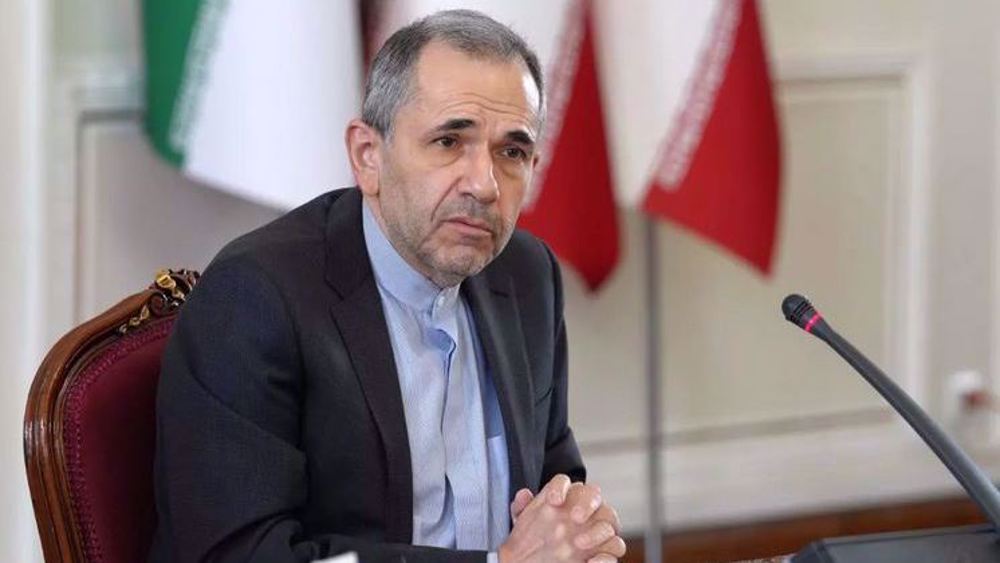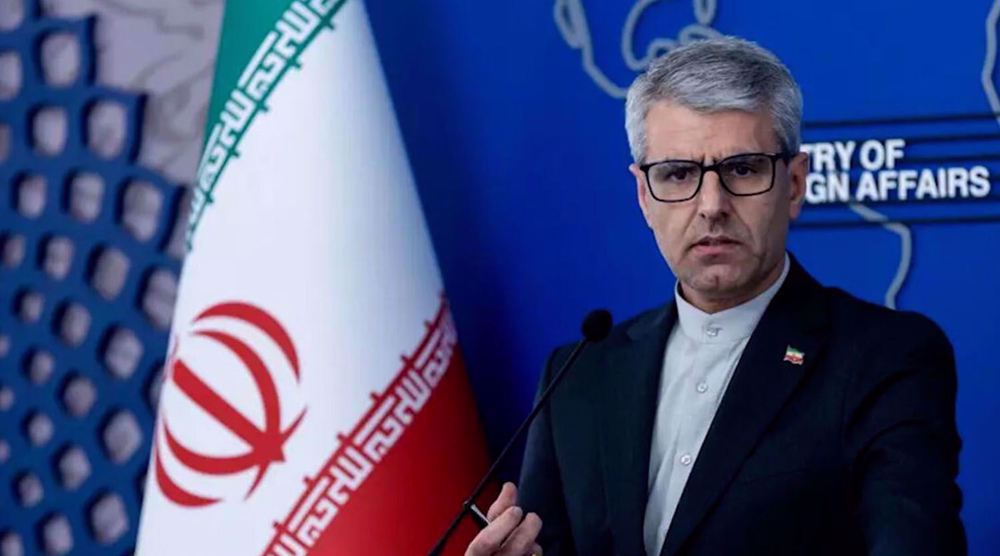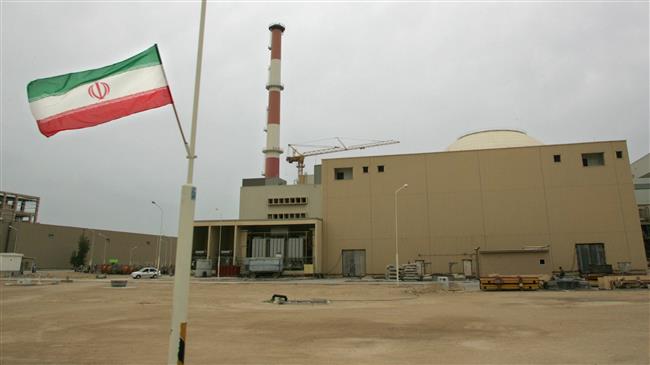Russia, China hail Iran's commitment to JCPOA, slam US for stirring tension
Russia and China have applauded Iran's implementation of the 2015 nuclear deal, warning the United States against taking any measures that would further undermine the landmark accord.
Iran on Wednesday informed the UK, France, China, Russia and Germany -- the remaining five signatories of the deal after America's exit on May 8 last year -- that it was suspending some of its commitments under the deal.
The decision came after Tehran gave the three European signatories "considerable" time at their own request to compensate for Washington’s withdrawal and guarantee Iran’s interests.
Russian Foreign Minister Sergey Lavrov said in a foreword to a meeting with his Iranian counterpart Javad Zarif that Moscow appreciates Tehran's adherence to the provisions of the Joint Comprehensive Plan of Action (JCPOA) and United Nations Resolution 2231, which endorses it.
"We value Iran’s commitment to the reached agreements and the UN Security Council resolution as was once again clarified today in Tehran’s corresponding statement," Lavrov pointed out.
Referring to the actions of US President Donald Trump to undermine the JCPOA, Lavrov said the current situation surrounding the agreement was "unacceptable."
"We will have to discuss the unacceptable situation, which has evolved around the JCPOA, the situation, which has evolved because of the United States’ irresponsible behavior, which abandoned its commitments enshrined in the relevant UN Security Council resolution," he stressed.3
"The US is to blame for the situation and it makes it difficult for both Iran to fulfill its obligations and ... for the general state of the nuclear non-proliferation regime," he said.

Describing as "unrealistic" the Trump administration's plans to curb Iran's influence in the Middle East -- the main reason Trump left the JCPOA and urged a renegotiation -- Lavrov said such measures "have no chances of success."
The top Russian diplomat said the US Should focus on democracy instead of threatening other countries with sanctions and other hostile measures, amid Trump's push to zero out Iran's oil exports.
He also called a decision by Washington to beef up presence in the Middle East "regrettable," following reports that a US Navy carrier strike group was on its way to the region.
Lavrov also called for consultations between the signatories and said he expects European signatories of the Iran nuclear deal to fulfill their obligations.
He also said it was crucial that Iran could freely export oil under the nuclear deal.
US aggravating tensions: China
Also on Wednesday, Chinese Foreign Ministry spokesman Geng Shuang warned that Washington had “further aggravated” tensions over the Iran's nuclear deal.
"China applauds Iran's faithful implementation of the JCPOA so far and firmly opposes US sanctions and so-called 'long-arm jurisdiction' on Iran," he said. "We regret that the US moves have heightened tensions surrounding the Iranian nuclear issue."
He noted that Beijing appreciated Iran’s “strict implementation” of the JCPOA.
Geng said China “calls on all parties concerned to exercise restraint” and avoid escalating tensions.
"China will maintain communication with all parties concerned and continue to work toward upholding and implementing the agreement. At the same time, we will stand firm in safeguarding the legal and legitimate interests of Chinese enterprises," he said.
Read more:
Iran said in a statement that it will no longer consider itself committed to the limits agreed under the deal on its stocks of enriched uranium and heavy water stocks.
Under the JCPOA, Iran is allowed to keep 300 kilograms of uranium enriched up to 3.67 percent. The deal requires Tehran to sell off any enriched uranium above the limit on international markets in return for natural uranium.
Tehran’s stock of heavy water is also restricted to 130 tonnes under the deal, which also calls for Iran’s excess heavy water to be sold to a foreign buyer.
Iran’s Supreme National Security Council (SNSC) has given Iran’s partners in the deal “60 days to meet their commitments, especially in the banking and oil sectors,” said the statement.

Iran, Armenia should elevate ties to strategic partnership: Deputy FM

French police detain female Iranian academic to silence anti-Israeli genocide voices

Iran: US talks focus on lifting ‘cruel sanctions’; no direct engagement amid threat, pressure
Full-blown famine grips Gaza as 91% of population faces extreme food insecurity: NGO
VIDEO | Press TV's news headlines
Iranian FM informs Saudi counterpart about indirect talks
VIDEO | Pakistani parliament adopts resolution against Israeli atrocities in Gaza
Iran: Second round of indirect talks with US will be held in Oman
China urges US to ease trade tensions via ‘equal dialogue’
‘Hamas not defeated, military overstretched’: Israeli army chief
Iran, Armenia should elevate ties to strategic partnership: Deputy FM







 This makes it easy to access the Press TV website
This makes it easy to access the Press TV website